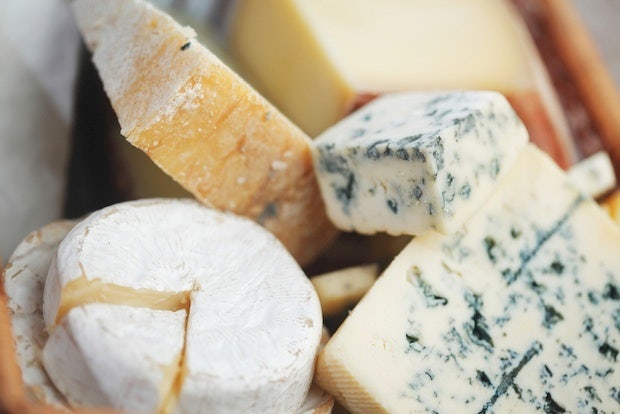
As affluent Chinese consumers grow more concerned about food safety, foreign companies are cashing in. (Shutterstock)
With China’s spate of food safety scandals in recent years, foreign food products have become a luxury worth investing in for a growing number of wealthy Chinese consumers.
A new report by consulting firm Data Driven Marketing Asia (DDMA) finds that the demand for foreign food brands is rising in China, and the number of global food companies hoping to cash in is growing along with it.
The firm’s survey of 500 middle- to high-income Shanghai residents finds that many consumers are on the lookout for foreign food brands both while shopping and dining out. According to the report, 48 percent of consumers “actively seek out foreign food brands when shopping,” while 60 percent “prefer restaurants that serve foreign food.”
With a total of 1,090 food scandals reported in Chinese media over the last three years, it’s no surprise that safety is the key issue for these customers’ foreign preferences. Food safety was the respondents' highest concern by a wide margin, topping worries about air quality, water quality, healthcare, and China’s economy. The number of scandals being reported has gone down drastically in the past two years, but the worries are still prevalent in people's minds.
While there were 710 scandals in 2011, the number fell to 170 in 2012, but shot up to 210 last year. According to the survey, "dishonest companies" take most of consumers’ blame for the scandals, with 94 percent saying that the main reason for so many scandals is that “dishonest companies are not punished.”
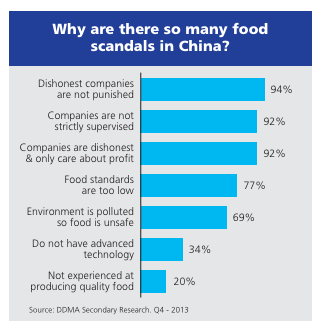
Although imported food is more expensive, rising incomes and consumer perceptions mean that more Chinese customers are willing to pay a premium for the luxury. China’s wealthy are particularly fond of foreign brands, with 80 percent agreeing that “foreign food brands are better,” compared to 70 percent of middle-income respondents. In addition, affluent consumers are more likely to go to restaurants that serve foreign foods, actively research foreign food brands, and seek out foreign food brands while shopping.
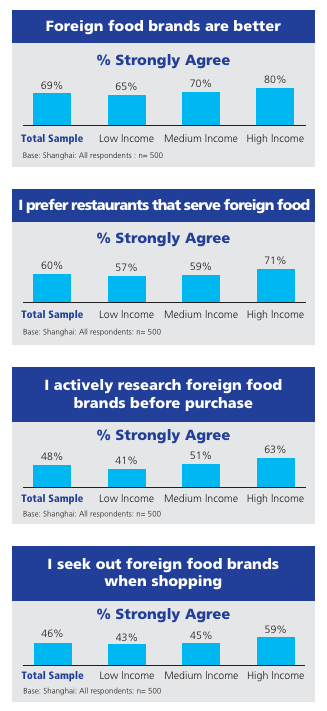
Food from New Zealand is the top choice for survey respondents, who believe that the country’s high food safety standards and clean environment make its food brands the most worthy of purchase. Meanwhile, neighbor Australia comes in second, with perceptions of a clean environment playing a larger factor than regulation.
While Germany and the United States don’t fare very well in terms of perception of environmental cleanliness, they are next on the list thanks to consumers’ perceptions of strong regulation and high technology. Germany beats out the United States, however, because its food brands are considered more “trustworthy."
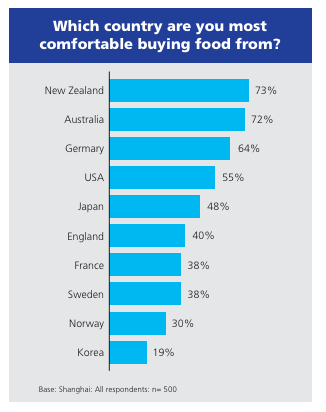
Also making the list were neighbor countries Japan and South Korea, as well as the United Kingdom, France, and Nordic countries Sweden and Norway. When broken down by individual categories of positive affiliations, Norway wins in many, such as high safety standards and clean environment.
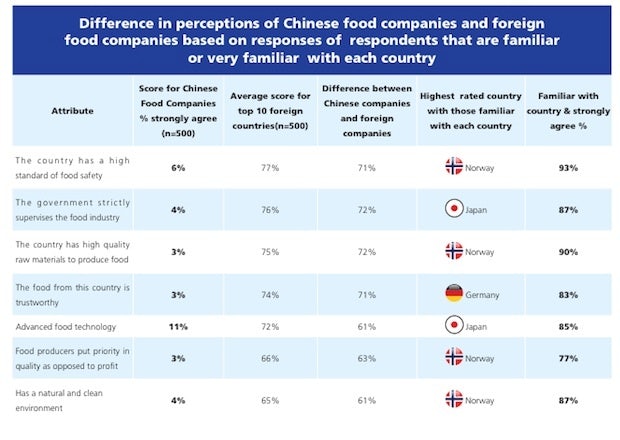
According to the report, these factors have strong implications for foreign food brands—especially high-end ones. In addition to the preference for foreign foods at fancy restaurants, the preference for foreign brands is causing “a developing quality to high end retail segment, especially in the emergence of high end/boutique supermarkets and the improvement of the domestic retail experience.”